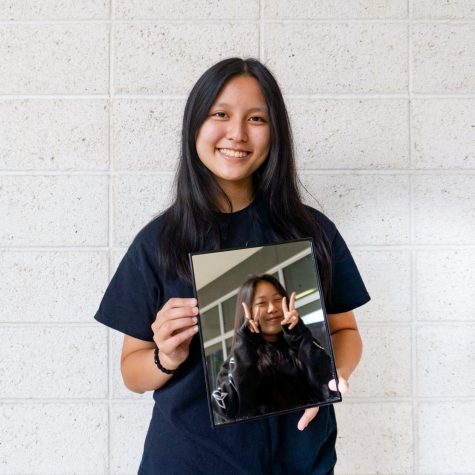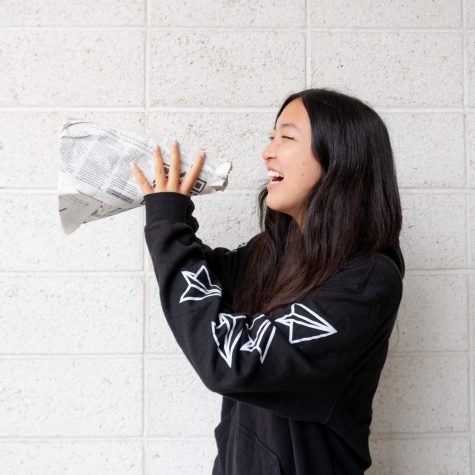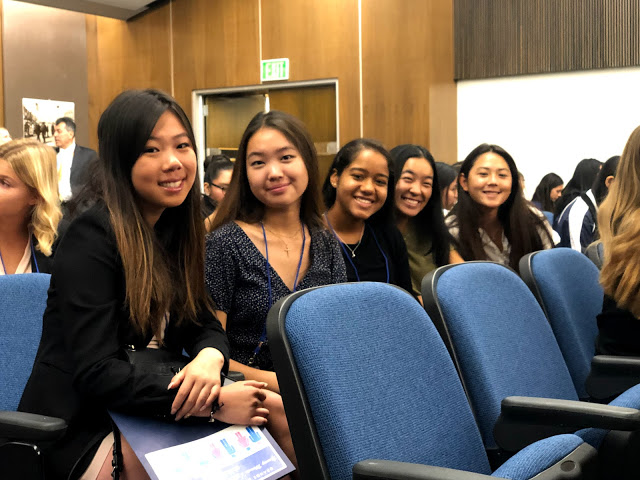Aspiring Female Students Empowered by Youth Female Civic Leadership Conference
Ariana Wu, Kristen Ok, Saachi Pavani, Allison Shi, and Lauren Hwang remain in their seats, waiting for one of the three total panel presentations to commence. Among the many speakers in this conference, the female judges ‒especially one first-generation immigrant judge‒ stood out because of their personal stories on the difficulties of career advancement.
The field of law and civic education has largely been associated with men donning black suits and meticulously-knotted ties; women, meanwhile, have historically stood in the background. However, on Oct. 24, nine female students were challenged to defeat this occupational gender stereotype by attending the Youth Women’s Civic Leadership Conference at the Orange County Superior Court.
Although its intent was to educate girls about the inner workings of the judicial branch, this program also discussed the importance of women in law, placing special emphasis on making this male-dominated field appear more accessible to females.
The nominated students were seniors Dheitshaa Bala, Amulya Chava, Lauren Hwang, Maya Sabbaghian and Allison Shi; juniors Ariana Wu and Kristen Ok; and sophomore Saachi Pavani.
“I’ve known since I was in middle school that I wanted to go into law,” Wu said. “And over the course of high school, I’ve definitely taken advantage of the courses that let me learn more about these subjects.”
When deciding who to nominate, the social studies department sought out students who displayed a burning passion for law and a willingness to learn that transcended traditional classroom lessons.
“We picked the young women that we did because in our classes and activities around the school, these are the young women that always exhibited the desire to help and have always exhibited tremendous empathy, whether it’s in history class or civics class,” social studies department chair Jon Resendez said. “They’re always thinking about not only what they have to know and what they have to be able to do, but also how they can use that to impact other people.”
Throughout the conference, students were able to hear from inspiring panel speakers, learn through educational presentations and participate in interactive activities. Unlike many other conferences, the law students, lawyers, judges and commissioners featured were, for the most part, all women
“For me, I really liked seeing how all of these people who came from totally different backgrounds, from the most underprivileged to the people who have had law in their family for years, and seeing how they all share this passion to uphold this law that applies to everybody,” Wu said.
Despite their varying upbringings and ethnic differences, each presenter was adamant about altering the societal norms in the field of law. By discussing the hardships they faced, in terms of economic and societal obstacles, and the ways in which they persevered, these female professionals were able to inspire a new generation of girls.
“For me, I was always really concerned about becoming a human rights lawyer or a civil litigator because it’s really hard to make money in that field,” Bala said. “But after listening to what they spoke about, it really spoke to me because despite all the struggles… ultimately the benefit you bring to the community and, ultimately, the impact that you can make, it’s so much bigger than any monetary value.”
Your donation will support the student journalists of Portola High School. Your contribution will allow us to purchase equipment and cover our annual website hosting costs.

Charlotte Cao is the Features Editor for her third and, unfortunately, final year on the Pilot. Whether it be through the co-writing of stories or during...

Claudia Lin is your co-editor-in-chief for her third year on the Pilot. She is looking forward to making as many memories as possible for her last year...




